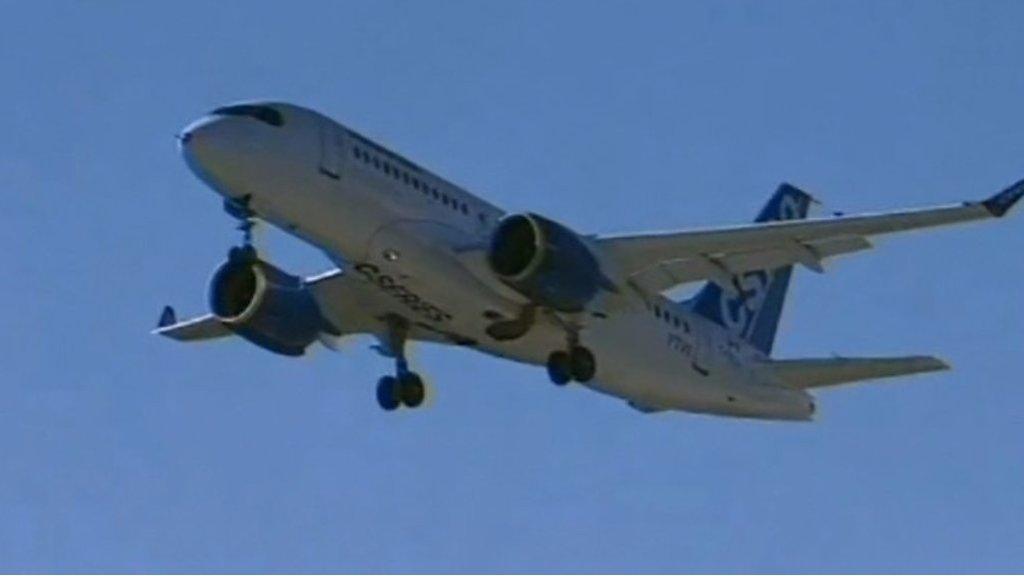Brexit: Bombardier boss opposes 'Irish Sea border'
- Published
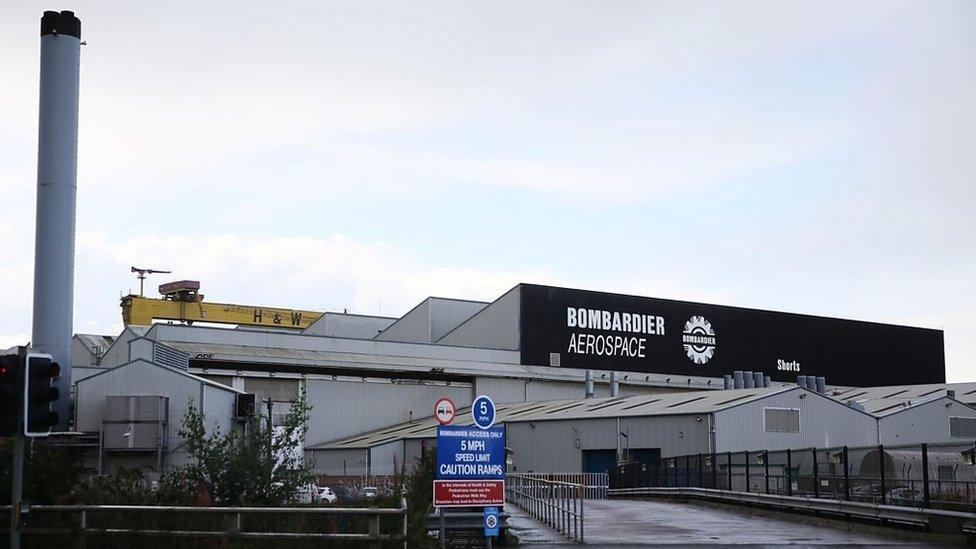
Michael Ryan said most imports for the Northern Ireland aircraft factories come via Liverpool and Southampton
The head of Bombardier's Northern Ireland operation has said he opposes a Brexit outcome that would make trade across the Irish Sea more difficult.
Michael Ryan told the Bloomberg news agency that most imports for the Northern Ireland aircraft factories come via Liverpool and Southampton.
He said this was the case "whether from UK suppliers, European suppliers or from North America and China".
Mr Ryan added that only a small number of items come in via Dublin airport.
Before the Brexit referendum, Mr Ryan wrote to staff telling them "it is better for our company that the UK remains within the EU".
The issue of the Irish border has featured prominently in the Brexit debate with the EU seeking assurances from the UK about how it will ensure there is no return to a hard border.
Talks between Prime Minister Theresa May and European Commission President Jean-Claude Juncker broke up without agreement on Monday.
Sticking point
The crucial sticking point was over how closely aligned Northern Ireland's regulations will be with those in the Republic of Ireland, and the rest of the EU.
The DUP said it could not support anything that would see Northern Ireland more closely aligned with the EU than the UK, leading to a border developing in the Irish Sea.
Mr Ryan told Bloomberg that Bombardier wants to preserve the status quo as much as possible, regardless of whether the customs boundary is drawn at the "Channel Tunnel or Stranraer" but regards the latter option as more onerous.
Bombardier is Northern Ireland's largest manufacturing employer with more than 4,000 staff.
It supports the position of the aviation trade body, ADS, which has warned that not reaching a deal with the EU would have significant commercial consequences for UK industry.
ADS wants any agreement to give the UK access to, and influence in, the regulatory regime operated by the European Aviation Safety Agency.
It also wants access to the single market without burdensome customs administration and transitional arrangements that give time for the sector to adjust to new trading relationships.
- Published17 October 2017
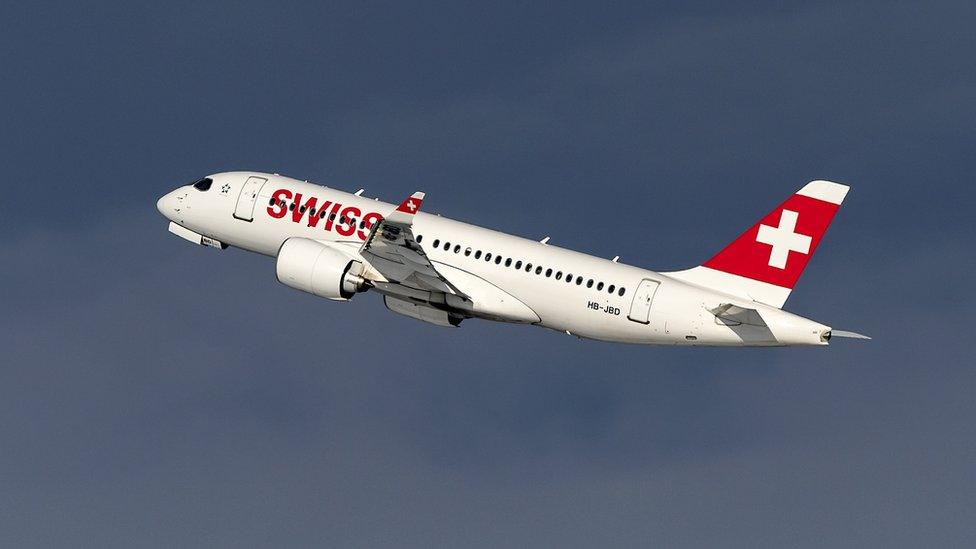
- Published17 October 2017
- Published7 October 2017
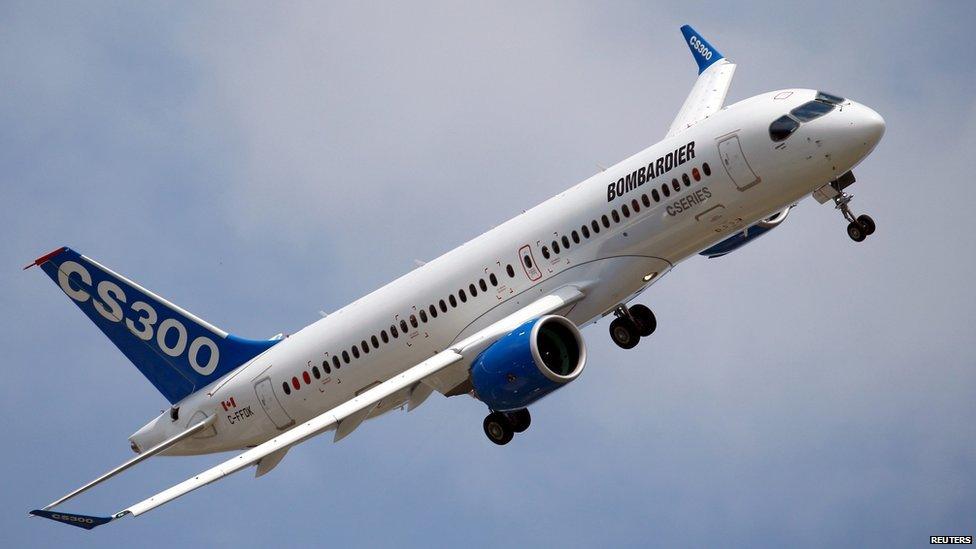
- Published26 September 2017
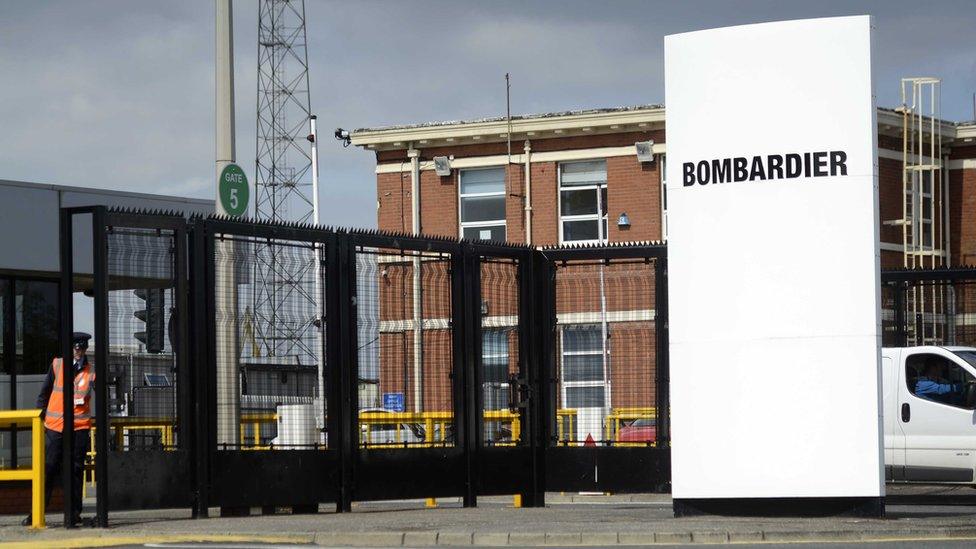
- Published12 September 2017
